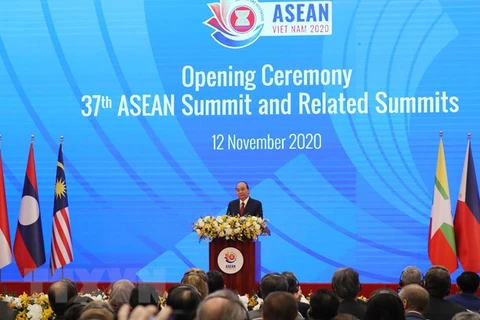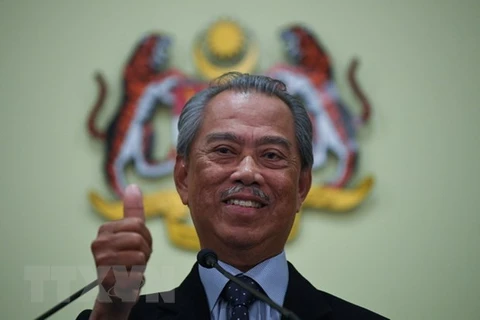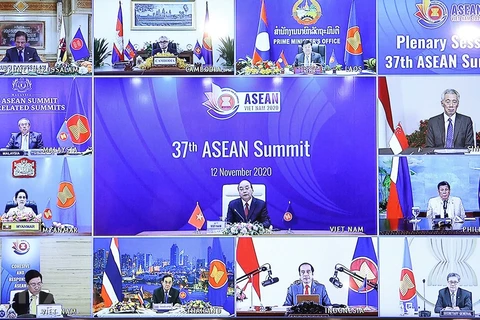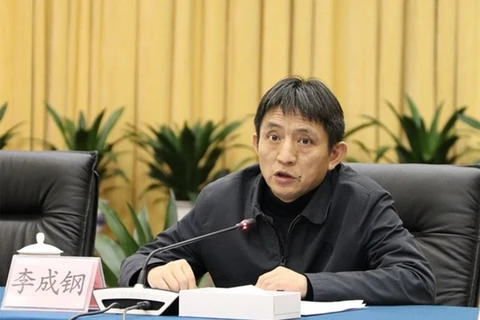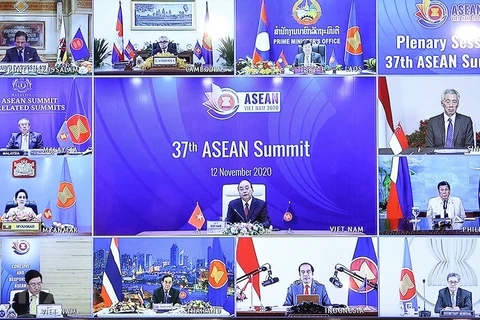 Indonesian President Joko Widodo speaks at the plenary session of the ongoing virtual 37th ASEAN Summit on November 12. (Photo: AFP/VNA)
Indonesian President Joko Widodo speaks at the plenary session of the ongoing virtual 37th ASEAN Summit on November 12. (Photo: AFP/VNA)Jakarta (VNA) - Indonesian President Joko Widodo applauded the release of the Statement on the ASEAN Travel Corridor Arrangement (TCA) at the plenary session of the ongoing virtual 37th ASEAN Summit on November 12.
Joko Widodo affirmed the TCA should be implemented immediately and called on the ASEAN Coordinating Council and other ASEAN agencies to coordinate in realising it quickly and effectively. The TCA was proposed by the Indonesian leader at the 36th ASEAN Summit held on June 26.
According to the President, ASEAN also needs to immediately implement a temporary "quick lane" and medical protocols to be applied for immigration, using the integrated digital platforms in the region to define locations of entry, and developing strict regulations on medical protocols.
Expressing his hope that the TCA could come into operation in the first quarter of next year, President Joko Widodo said that the deal would reinforce confidence that regional economic activities will gradually be resumed by strictly adopting medical procedures.
He also expressed optimism that the Regional Comprehensive Economic Partnership (RCEP) will be signed at this summit after about 8 years of negotiations.
"We have to prove that this enormous economic integration will benefit our people," he said.
The President stressed ASEAN's role in maintaining regional peace and stability, saying ASEAN needs to stay firm, maintain balance, and continue to convey the message of strengthening win-win cooperation.
He emphasised the importance of partners respecting the Treaty of Amity and Cooperation in Southeast Asia and international law, including the 1982 United Nations Convention on the Law of the Sea (UNCLOS 1982).
President Joko Widodo affirmed that with the strong commitment to promoting inclusive cooperation, ASEAN would play a central role in boosting regional collaboration./.
VNA
